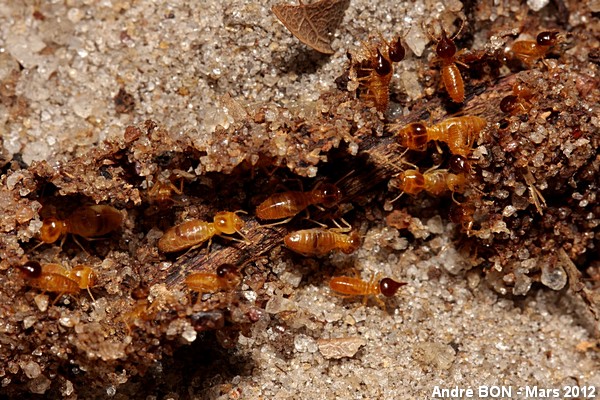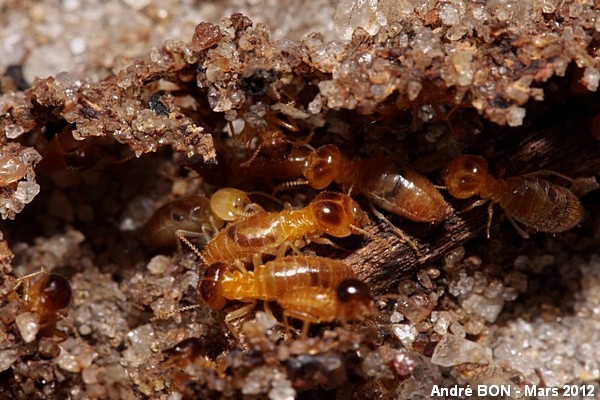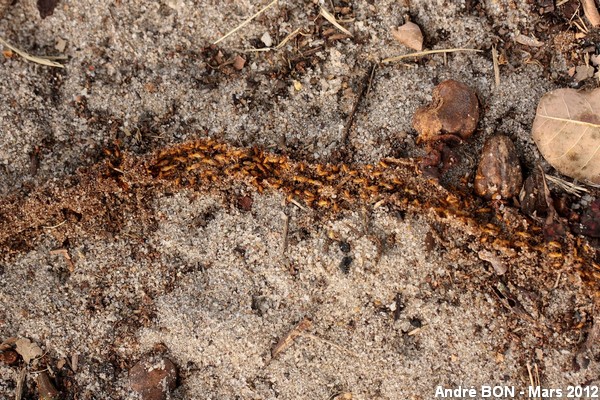


| Nasutitermes sp. (Dudley, 1890) |



|
|
Scientific name: Nasutitermes sp. (Dudley, 1890) Common name: French name: Order: Dictyoptera Family: Termitidae Wingspan : Soldiers: 3 to 5.5 mm; Reproductive winged adults : 6 to 8.5 mm without wings, 12 to 16 mm with wings (information found for Nasutitermes corniger). Biotope: Forests, savannahs with trees. Nests are often arboreal and spherical-shaped. A colony can contain hundreds of thousands of individuals. Geographic area: The Nasutitermes genus is found in all tropical and neo tropical regions of the world. Observation period : All year round. |
Termites are insects with a soft body. They are living in colonies. Each colony has one queen, one king, soldiers (about 5% of the population), the remaining insects are workers. Workers and soldiers are blind. The mated queen grows very large, often more than one hundred times of its original size. There are also reproductive wings termites of both sexes which will loose their wings after a nuptial flight. They will create new colonies. You can tell apart termites of the Nasutitermes genus with the pointed cephalic nozzle, or nasus, of soldiers. It is used to propel a goo at enemies. There are about 200 different species in the Nasutitermes genus. So this is rather difficult to tell species apart. |
| [To know more about the Nasutitermes sp.] [Next picture] [Top] |

|
I have taken this picture along the beach of Awala Yalimapo. You can clearly see the nasus soldiers on this picture. This confirms the Nasutitermes genus. The nest was located in a tree. The moving tunnel must have been open by someone walking on the sandy ground. |
| [To know more about the Nasutitermes sp.] [Next picture] [Previous picture] [Top] |

|
Here are the workers. |
| [To know more about the Nasutitermes sp.] [Previous picture] [Top] |

|
Here is one more distant view of the termite open tunnel. |